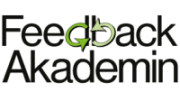We have the most to gain in the beginning of the phases that the group development models go through. The first and second phase are the most interesting from a group development perspective.
There are several different group development models. Even though the names of the phases and their core points differ in the different models, they still have many similarities.
The first phase I will from now on call Belonging, based on the model made by Susan Wheelans and Will Schutz. Schutz’s model is used a lot and often called FIRO (Fundamental Interpersonal Relations Orientation). This model has in some cases been replaced with Susan Wheelan’s model IMGD (an Integrative Model of Group Development). Susan Wheelan has based her research on already existent models and integrated elements from different group development models, therefore the name Integrative Model. IMGD is also called GDQ where the focus lies on the tool GDQ. Feedback Academy is certified in GDQ and has for many years been working with the tool in both Swedish and international groups.
[table id=3 /]
Regardless the name of the model, all of them show that it is in the later phases that the groups are well functioning, productive and successful. Small investments in developing groups give great benefits.
Feedback Academy wants to contribute to the creation and development of viable groups. We know that it’s as important with the work processes as it is with relationship processes and it is in the meeting between these two that development happens, where we are truly effective. Group development creates profitable groups and feedback is an important tool in this context.
We also need to introduce a development culture to get the most out of the feedback. In a judgement culture, feedback can be used as a cover story to suppress someone or to find a scapegoat. Therefore, groups and organisations have a lot to gain from actively working to create a development culture!
